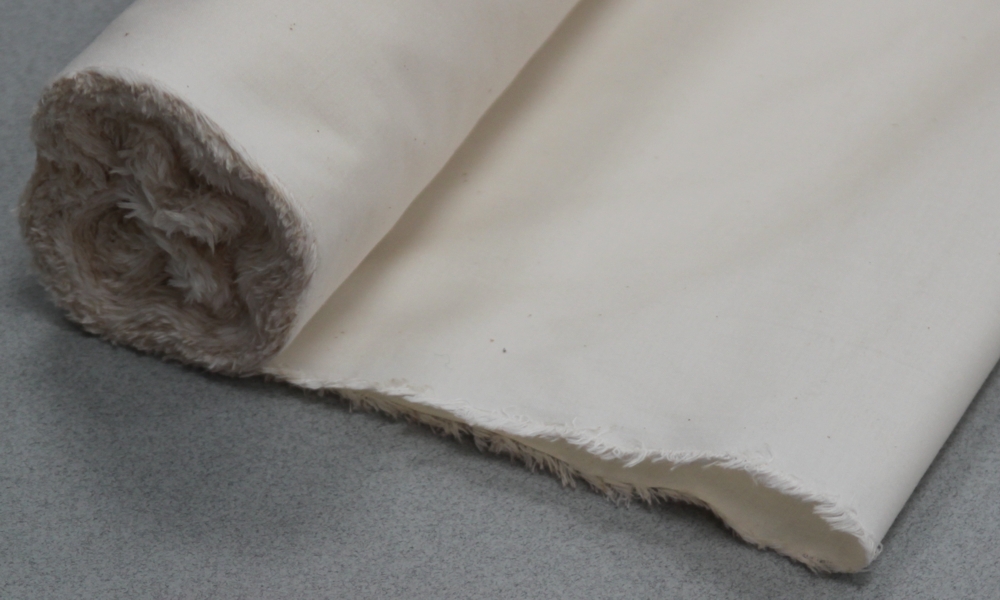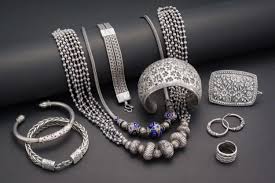Small fashion businesses and independent designers face a common challenge: finding high-quality cotton fabric by the yard without breaking the bank or meeting impossible minimum order quantities. Dallas fashion entrepreneurs know this struggle well, especially when trying to launch new collections or test market demand for their designs.
This guide breaks down the best online sources for premium cotton fabric in Dallas, focusing on suppliers that understand the needs of emerging designers and small businesses. You’ll learn what makes cotton fabric premium, why low MOQ matters for your business, and where to find the best deals without compromising on quality.
Why Dallas Matters for Fashion Sourcing
Dallas has become a significant fashion hub in the American South. The city hosts major fashion events, houses numerous design studios, and attracts both established and emerging designers. Local sourcing offers several advantages for Dallas-based fashion businesses.
Faster shipping times mean you can respond quickly to market trends and customer demands. Working with suppliers who understand the local market helps you build stronger business relationships. Many Dallas-area suppliers also offer showrooms where you can see and feel fabrics before purchasing.
The Dallas fashion scene supports both luxury and affordable fashion segments. This diversity creates opportunities for designers at all levels, from high-end boutique brands to mass-market retailers. Understanding your local market helps you choose the right fabric suppliers for your specific needs.
What Makes Cotton Fabric Premium
Premium cotton fabric stands apart from standard cotton in several key ways. The fiber quality starts with the cotton variety and growing conditions. Longer staple cotton fibers create smoother, stronger fabric that feels better against the skin and lasts longer.
Thread count matters, but it’s not the only factor. Premium cotton uses higher-quality yarns with consistent thickness and strength. The weaving process also affects the final product quality. Tight, even weaves create fabrics that hold their shape better and resist pilling.
Finishing processes separate premium cotton from basic options. Quality cotton fabrics undergo proper pre-shrinking, mercerization for luster and strength, and careful quality control checks. These steps ensure the fabric performs well during cutting, sewing, and wearing.
Color consistency and dye quality also define premium cotton. Superior dyes penetrate fibers evenly and resist fading. This matters especially for fashion items that need to maintain their appearance through multiple washes and extended wear.
Why Low MOQ Benefits Small Fashion Businesses
Minimum order quantities can make or break small fashion businesses. Traditional fabric suppliers often require orders of hundreds or thousands of yards, which creates several problems for emerging designers.
Cash flow becomes a major issue when you must purchase large quantities upfront. Small businesses need to test designs and market response before committing to large orders. Low MOQ allows you to experiment with different fabrics and colorways without risking significant capital.
Storage costs add up quickly for small businesses. Large fabric orders require warehouse space, which most independent designers cannot afford. Low MOQ orders let you buy fabric as needed, reducing storage costs and inventory management challenges.
Market testing becomes possible with low MOQ options. You can produce small batches of garments to test customer response before scaling up production. This approach reduces risk and helps you make data-driven decisions about your product line.
Seasonal flexibility increases when you can order smaller quantities. Fashion trends change quickly, and being stuck with large quantities of outdated fabric can hurt your business. Low MOQ suppliers let you adapt to market changes more easily.
Top Online Sources for Cotton Fabric in Dallas
Fabriclore
Fabriclore specializes in customized fabric design, dyeing, and printing at low MOQ for fashion brands. They offer cotton, cellulose, rayon, viscose, linen, and other natural fibers. Their platform serves over 400 private labels globally, which demonstrates their reliability and scale.
The company provides fabric sourcing with unmatched wholesale prices and customized design options. Their tech-enabled platform ensures exceptional customer support and delivery transparency. This matters for Dallas designers who need reliable suppliers for their fashion businesses.
Fabriclore’s minimum order quantities start at reasonable levels for small businesses. They offer both plain and printed cotton fabrics, with customization options for colors and patterns. Their global reach means they can serve Dallas designers efficiently while maintaining competitive pricing.
Mood Fabrics
Mood Fabrics operates both online and through physical showrooms, making them accessible to Dallas designers. They stock a wide range of cotton fabrics, from basic cotton to premium designer options. Their online platform makes it easy to buy fabric online with detailed product descriptions and customer reviews.
The company offers cotton fabric by the yard, which works well for small designers who need specific quantities. Their inventory includes apparel-weight cottons, home décor fabrics, and specialty cotton blends. Regular sales and promotions help small businesses manage costs.
Mood Fabrics provides detailed fabric specifications, including weight, width, and care instructions. This information helps designers make informed decisions when buying fabric online. Their customer service team can answer technical questions about fabric properties and suitability for specific projects.
Online Fabric Retailers Serving Dallas
Several online retailers focus specifically on serving small fashion businesses and independent designers. These suppliers understand the unique needs of emerging brands and offer flexible ordering options.
Many of these retailers offer sample programs that let you test fabric quality before placing larger orders. This service proves especially valuable when you buy fabric online and cannot physically examine the material first. Sample programs typically cost a few dollars per sample but can save hundreds on unsuitable purchases.
Some online retailers also provide fabric matching services, helping you find similar fabrics from different suppliers. This service helps when you need to reorder popular fabrics or find alternatives when your preferred fabric becomes unavailable.
Additional Resources for Dallas Fashion Designers
Dallas fashion designers can access numerous resources beyond fabric suppliers. These resources help with education, networking, and business development.
Local Fashion Design Studios and Resources
Savi Fashion Studio (www.savisfashionstudio.com) offers courses and guidance for fashion designers in Dallas. They provide practical training on industrial machines, software, and business aspects of fashion design.
The Fashion Institute of Technology (https://www.fitnyc.edu/) offers online courses and resources that Dallas designers can access remotely. While based in New York, their online programs serve students and professionals nationwide.
Educational Platforms and Technology Tools
Several online platforms offer fashion design education and tools specifically for small businesses and independent designers.
Domestika (https://www.domestika.org/) provides fashion design courses and creative tools. Their platform includes both free and paid content, making it accessible for designers at different experience levels.
Fashion design software tools help Dallas designers create professional patterns and designs. Clo 3D (https://www.clo3d.com/) offers 3D design software with educational pricing for students and small businesses. Browzwear (https://browzwear.com/) provides similar tools with free tutorials and asset libraries.
Pattern-making tools like FreeSewing (https://freesewing.eu/) offer free pattern design software. These tools help designers create professional patterns without expensive software investments.
Industry Information and Trends
Fashion Network (in.fashionnetwork.com) provides information about jobs, business, retail, design, and industry trends. This resource helps Dallas designers stay current with market developments.
Cotton Incorporated (www.cottoninc.com) offers deep insights into cotton fabrics and their properties. Their research helps designers understand fabric performance and make better sourcing decisions.
CottonWorks (https://www.cottonworks.com/en/) provides a digital fabric library, guides, and webinars about cotton fabrics. This resource helps designers learn about different cotton types and their applications.
Tips for Sourcing Cotton Fabric Online
Successful online fabric sourcing requires careful planning and the right questions. These tips help you avoid common mistakes and find the best suppliers for your needs.
Questions to Ask Suppliers
Ask about minimum order quantities for different fabric types. Some suppliers offer lower MOQs for basic fabrics but require larger orders for specialty items. Understanding these requirements helps you plan your orders effectively.
Request information about lead times and shipping options. Rush orders often cost more, so planning ahead saves money. Ask about bulk shipping discounts if you plan to order from the same supplier regularly.
Inquire about return policies and fabric guarantees. Reputable suppliers stand behind their products and offer reasonable return policies for defective materials. This protection becomes especially important when you buy fabric online.
Ask about color matching services and dye lot consistency. Fashion businesses often need to reorder the same fabric colors, and dye lot variations can create problems. Good suppliers maintain color standards and offer matching services.
How to Evaluate Fabric Quality Online
Request fabric samples before placing large orders. Most reputable suppliers offer sample programs that let you test fabric quality, color accuracy, and performance. Sample costs typically range from $2-10 per sample but can save hundreds on unsuitable purchases.
Read product descriptions carefully and look for specific technical information. Quality suppliers provide detailed specifications including fiber content, weight, width, and care instructions. Vague descriptions often indicate lower-quality products.
Check customer reviews and ratings when available. Other designers’ experiences can provide valuable insights into fabric performance and supplier reliability. Look for reviews that mention specific uses similar to your intended application.
Compare prices across multiple suppliers, but don’t choose based on price alone. Extremely low prices often indicate quality compromises that can cost more in the long run. Factor in shipping costs, lead times, and return policies when comparing suppliers.
Consider the supplier’s communication quality and responsiveness. Good suppliers respond promptly to questions and provide detailed information about their products. Poor communication often indicates service problems that can affect your business.
Building Your Dallas Fashion Business with Quality Cotton
Sourcing premium cotton fabric at low MOQ gives Dallas fashion designers the flexibility to build successful businesses. The suppliers and resources outlined in this guide provide solid foundations for your fabric sourcing strategy.
Start by identifying your specific fabric needs and budget constraints. Use the sample programs offered by suppliers like Fabriclore and Mood Fabrics to test different options. Build relationships with multiple suppliers to ensure consistent access to the materials you need.
Take advantage of the educational resources available through organizations like Savi Fashion Studio and online platforms like Domestika. Continued learning helps you make better sourcing decisions and stay current with industry trends.
Consider joining local fashion organizations and networking groups to connect with other Dallas designers. Sharing experiences and recommendations helps the entire fashion community grow stronger. Many successful designers collaborate on fabric orders to meet MOQ requirements or share shipping costs.
The Dallas fashion scene continues to grow, creating opportunities for designers who understand how to source quality materials efficiently. By following the guidelines in this article and building relationships with reliable suppliers, you can focus on what you do best—creating beautiful fashion that resonates with your customers.
Explore Fabriclore’s extensive selection of custom printed, ready mill-dyed, and yarn-dyed fabrics—ideal for your next collection. For personalized assistance, contact us at hello@fabriclore.com. Experience authentic, affordable, and seamless fabric sourcing.







